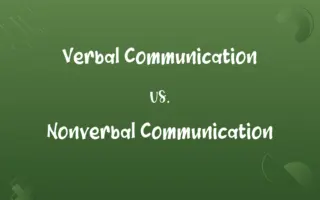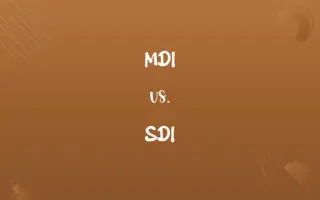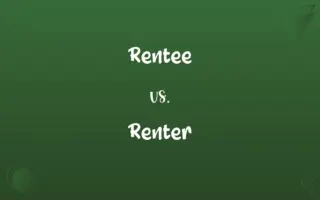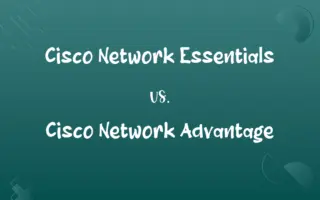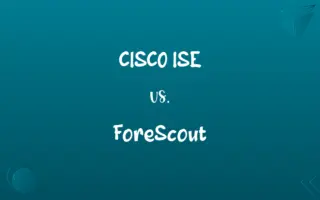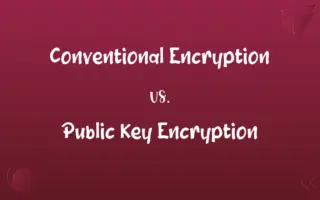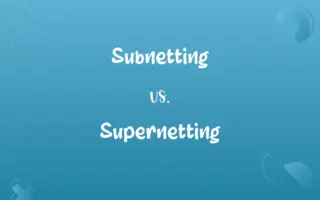RPC vs. RMI: Know the Difference

By Shumaila Saeed || Published on February 16, 2024
RPC (Remote Procedure Call) is a protocol for executing code across a network, while RMI (Remote Method Invocation) is a Java API for performing similar operations with support for Java objects.
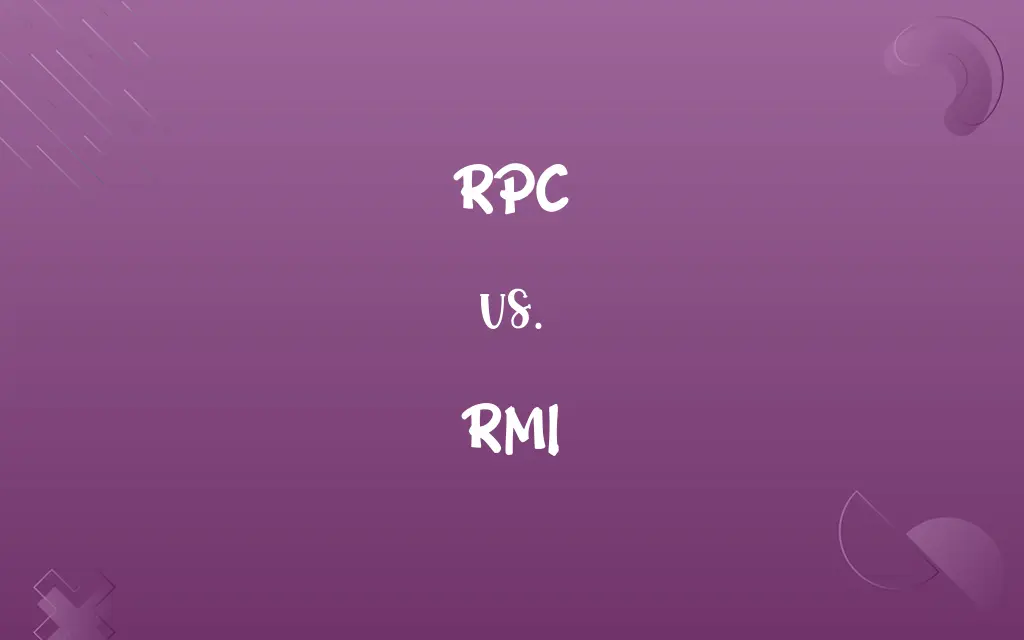
Key Differences
RPC is a protocol designed for executing code across different networked environments, emphasizing language neutrality and simplicity. RMI, specific to Java, extends RPC principles but focuses on invoking methods of remote Java objects, integrating seamlessly with Java's object-oriented nature.
Shumaila Saeed
Feb 16, 2024
RPC is language-agnostic, allowing various programming languages to interact over a network. RMI, in contrast, is designed exclusively for Java, making it inherently dependent on the Java platform, which limits its interoperability with non-Java environments.
Shumaila Saeed
Feb 16, 2024
RPC implementations are often more straightforward, as they require less overhead and are built into many operating systems. RMI, while more complex due to its object-oriented approach, offers deeper integration with Java applications, enabling more sophisticated functionalities like object serialization and garbage collection.
Shumaila Saeed
Feb 16, 2024
RPC, being simpler and more general-purpose, is easier to implement but offers fewer features. RMI provides advanced features like object passing, class loading, and garbage collection, catering to complex Java applications but at the cost of increased complexity.
Shumaila Saeed
Feb 16, 2024
RPC is well-suited for diverse environments where different programming languages and platforms need to interact. RMI is ideal for Java-centric applications requiring complex object-oriented capabilities and tight integration with Java's ecosystem.
Shumaila Saeed
Feb 16, 2024
ADVERTISEMENT
Comparison Chart
Object-Oriented Support
Limited, focuses on procedures
Strong, built around Java objects
Shumaila Saeed
Feb 16, 2024
ADVERTISEMENT
RPC and RMI Definitions
RPC
RPC is protocol-agnostic, supporting various communication methods.
The system's flexibility was due to RPC's support for multiple protocols.
Shumaila Saeed
Jan 16, 2024
RMI
RMI integrates seamlessly with Java's object-oriented features.
RMI allowed the application to leverage Java's object serialization.
Shumaila Saeed
Jan 16, 2024
RPC
RPC is a foundational technology for distributed systems.
RPC mechanisms underpin the distributed architecture of the application.
Shumaila Saeed
Jan 16, 2024
RMI
RMI is specific to the Java programming environment.
The software's interoperability was limited by RMI's Java-centric design.
Shumaila Saeed
Jan 16, 2024
ADVERTISEMENT
RPC
RPC allows inter-program communication over a network.
The client's request was processed through an RPC to the service.
Shumaila Saeed
Jan 16, 2024
RMI
RMI supports complex operations like object passing and garbage collection.
Object passing in the distributed system was facilitated by RMI.
Shumaila Saeed
Jan 16, 2024
RPC
RPC enables execution of code on a remote server.
The app used RPC to retrieve data from the central server.
Shumaila Saeed
Jan 16, 2024
RMI
RMI is a Java API for remote method invocation.
The server implemented an RMI interface for remote interactions.
Shumaila Saeed
Jan 16, 2024
RPC
RPC abstracts network communication, simulating local procedure calls.
With RPC, the database query appeared as a local function call.
Shumaila Saeed
Jan 16, 2024
RMI
RMI enables Java objects to interact remotely.
The Java app utilized RMI for accessing the remote object's methods.
Shumaila Saeed
Jan 16, 2024
Repeatedly Asked Queries
What is RPC?
Remote Procedure Call, a protocol for executing code across a network.
Shumaila Saeed
Feb 16, 2024
Is RPC suitable for Java applications?
Yes, but RMI is often preferred for its deeper integration with Java.
Shumaila Saeed
Feb 16, 2024
What is RMI?
Remote Method Invocation, a Java API for remote interaction with Java objects.
Shumaila Saeed
Feb 16, 2024
Is RPC compatible with web services?
Yes, RPC can be used in web service implementations.
Shumaila Saeed
Feb 16, 2024
How does RPC differ from RMI?
RPC is language-agnostic, while RMI is specific to Java and offers more object-oriented features.
Shumaila Saeed
Feb 16, 2024
Can RMI be used with languages other than Java?
No, RMI is designed exclusively for Java.
Shumaila Saeed
Feb 16, 2024
Why choose RMI over RPC in Java?
RMI offers advanced features like object passing and is tightly integrated with Java.
Shumaila Saeed
Feb 16, 2024
Can RPC and RMI communicate with non-Java systems?
RPC can easily, but RMI is limited due to its Java-centric nature.
Shumaila Saeed
Feb 16, 2024
Is learning curve for RMI steeper than for RPC?
Generally yes, due to RMI's complex features and Java specificity.
Shumaila Saeed
Feb 16, 2024
Does RPC support object-oriented programming?
Not inherently; it's more focused on procedural calls.
Shumaila Saeed
Feb 16, 2024
Can RMI be used for simple remote procedure calls?
Yes, though it's like using a complex tool for a simple task.
Shumaila Saeed
Feb 16, 2024
Can RMI be used for asynchronous communication?
It's primarily designed for synchronous communication, though asynchronous patterns can be implemented.
Shumaila Saeed
Feb 16, 2024
What are the key benefits of RPC?
Simplicity, language independence, and cross-platform capabilities.
Shumaila Saeed
Feb 16, 2024
How does RMI enhance Java's capabilities in distributed environments?
By providing native support for remote interactions and Java's object model.
Shumaila Saeed
Feb 16, 2024
How does error handling differ between RPC and RMI?
Error handling in RPC is typically protocol-specific, while RMI uses Java's exception handling.
Shumaila Saeed
Feb 16, 2024
Are there any scalability differences between RPC and RMI?
Both can scale, but RMI's complexity might require more resources for large-scale Java applications.
Shumaila Saeed
Feb 16, 2024
Does RPC require specific infrastructure?
No, it's a protocol that can be implemented over various network layers.
Shumaila Saeed
Feb 16, 2024
What makes RPC widely used in distributed systems?
Its simplicity and compatibility with various programming languages.
Shumaila Saeed
Feb 16, 2024
How does RMI handle object serialization?
It seamlessly serializes and deserializes objects for remote communication.
Shumaila Saeed
Feb 16, 2024
What are the security implications of using RMI?
RMI requires careful management as it can expose objects to remote access.
Shumaila Saeed
Feb 16, 2024
Share this page
Link for your blog / website
HTML
Link to share via messenger
About Author
Written by
Shumaila SaeedShumaila Saeed, an expert content creator with 6 years of experience, specializes in distilling complex topics into easily digestible comparisons, shining a light on the nuances that both inform and educate readers with clarity and accuracy.



